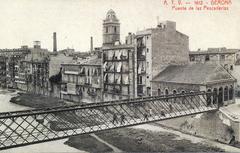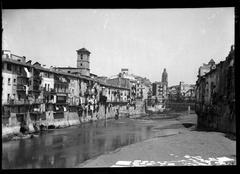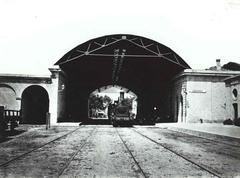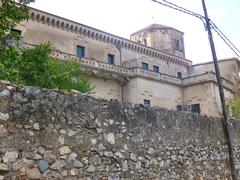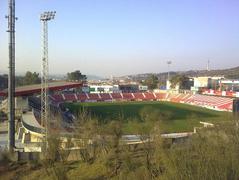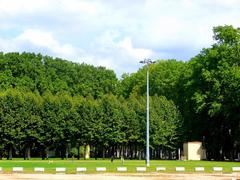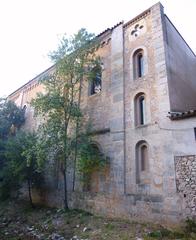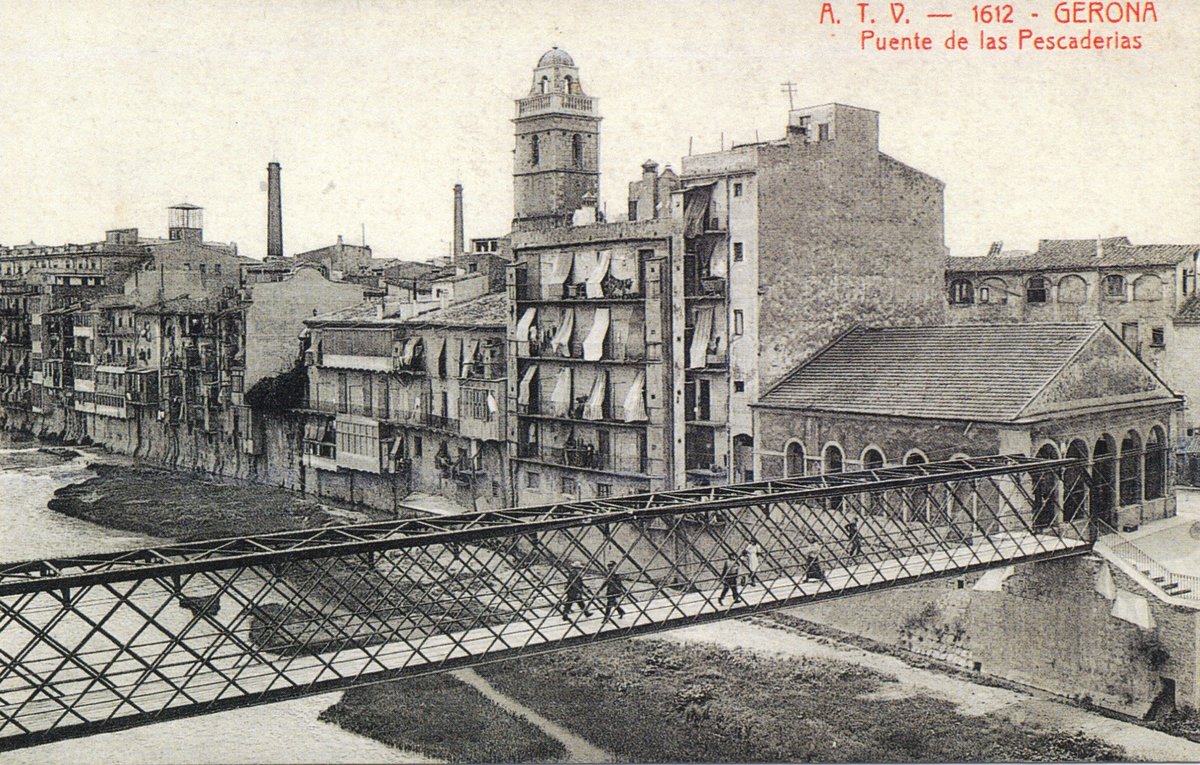
Guide to Visiting Pont de les Peixateries Velles
Date: 18/07/2024
Introduction
Table of Contents
- Introduction
- Historical Background and Significance
- Visitor Information
- Nearby Attractions
- Special Events and Tours
- Best Spots for Photography
- FAQ
- Conclusion
Historical Background and Significance
Early History and Construction
The Pont de les Peixateries Velles stands as a testament to Girona’s rich history, its origins dating back to the 12th century. Believed to have been initially constructed around 1196, the bridge connected the city center with the Mercadal island, a bustling hub of commerce and trade. This early version was characterized by its wooden framework and functionality as a covered bridge, providing shelter for merchants and their wares.
Transformations and Reconstructions
Over the centuries, the Pont de les Peixateries Velles underwent a series of transformations. In the 14th century, its wooden structure was replaced with more durable stone construction. This period also saw the bridge being uncovered, offering views of the Onyar River below. In 1680, a devastating flood necessitated a rebuilding effort, restoring the bridge to its former glory.
The Eiffel Influence
One of the most striking transformations came in the late 19th century. Inspired by Gustave Eiffel’s architectural innovations, the bridge underwent a complete redesign in 1879, incorporating distinctive iron elements. Overseen by architect Joan Rubió i Bellver, the redesign blended historical significance with modern trends, creating a structure that merges stone with intricate ironwork.
A Bridge of Many Names
The Pont de les Peixateries Velles is known by several names, each reflecting its history. The term “Bridge of the Old Fish Market” highlights its proximity to the city’s former fish market. Another name, “Eiffel Bridge,” acknowledges the influence of Gustave Eiffel’s style on its redesign. It’s also referred to as the “Red Bridge” due to its distinctive reddish hue from the iron elements.
Cultural Significance and Symbolism
Beyond its practical function, the bridge holds deep cultural significance. It symbolizes Girona’s resilience, having withstood floods, reconstructions, and changing architectural trends. The bridge serves as a reminder of Girona’s past as a center of trade and commerce, connecting the city center with the Mercadal island. Today, it is a beloved landmark and a popular gathering spot, offering picturesque settings along the Onyar River.
Visitor Information
Visiting Hours
The Pont de les Peixateries Velles is open to visitors 24 hours a day, seven days a week, allowing tourists to enjoy the bridge at any time.
Ticket Prices
There is no admission fee to visit the Pont de les Peixateries Velles. The bridge is a public structure and is freely accessible to all visitors.
Travel Tips
- Best Time to Visit: The bridge is less crowded early in the morning or late in the evening, making these times ideal for a peaceful visit and photography.
- Weather Considerations: Check the weather forecast before visiting, especially during the rainy season, as the bridge can become slippery.
- Local Cuisine: Explore nearby restaurants and cafes to enjoy local Catalan cuisine.
Accessibility Information
The Pont de les Peixateries Velles is accessible to pedestrians, including those with mobility challenges. The bridge has a smooth surface suitable for wheelchairs and strollers.
Nearby Attractions
- Girona Cathedral: A stunning example of Gothic architecture, located just a short walk from the bridge.
- Arab Baths: Historical baths offering a glimpse into Girona’s medieval past.
- La Rambla de la Llibertat: A lively promenade with shops, cafes, and vibrant street life.
- Jewish Quarter: One of the best-preserved Jewish quarters in Europe, rich in history and culture.
Special Events and Tours
The Pont de les Peixateries Velles occasionally hosts special events, such as local festivals and historical reenactments. Guided tours are available, offering insights into the bridge’s history and significance. Check the local tourism office for current schedules and availability.
Best Spots for Photography
- Onyar Riverbanks: Capture the bridge with the colorful houses along the river as a backdrop.
- Mid-Bridge: Stand in the middle of the bridge for a unique perspective of the structure and the river below.
- Nearby Bridges: Use other bridges along the Onyar River to get different angles and views of the Pont de les Peixateries Velles.
FAQ
- Is there an admission fee for the Pont de les Peixateries Velles?
- No, visiting the bridge is free of charge.
- Can I visit the bridge at night?
- Yes, the bridge is open 24/7, making it accessible at any time.
- Are there guided tours available?
- Yes, guided tours are available and can be arranged through the local tourism office.
